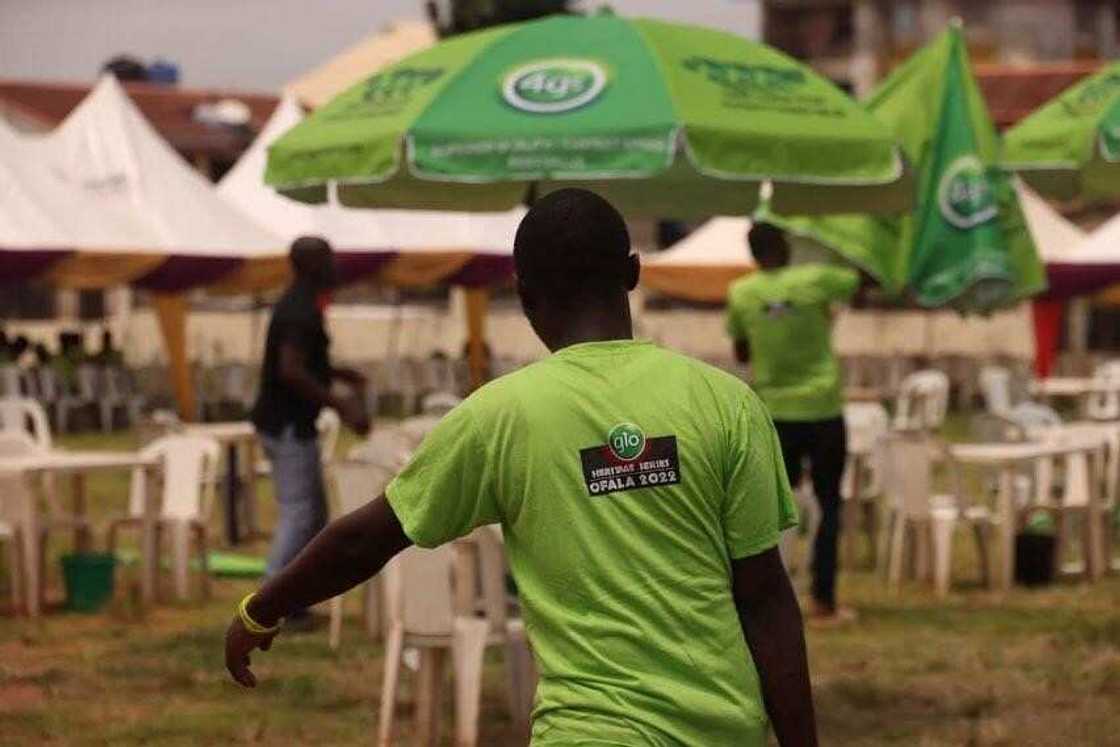3 Reasons Every Nigerian Must Have a Glo Line Today
“Glo dey try abeg,” a roadside SIM card seller shouted as he advertised his products, catching my attention as I drove by on a Lagos Street.
The middle-aged man then proceeded to list the impressive feats the giant indigenous telco has achieved as he convinced me and others - who were stuck in mildly heavy traffic - to buy from him.
Looking at what Globacom has achieved in the last two decades of its existence, one can't but agree with the man: Glo dey really try!

Source: UGC
At a time when a SIM card was very expensive and only a few could afford it, the Mike Adenuga-owned telecom company crashed the price down to ₦500 and eventually moved on to make it FREE.
Also, to the delight of millions of Nigerians groaning under the excruciating cost of per-minute billing before Globacom’s entry to the market, the company pioneered the per-second billing innovation.
Also, Globacom’s investments in submarine cables and other important technologies ensure wide internet coverage and quality nationwide network reach complemented with affordable tariffs.
Meanwhile, beyond its strides in telecommunications, Globacom stands taller among its foreign peers in the country with its unparalleled giving-back philosophy and philanthropy which cuts across education, sports development, culture, entertainment and arts promotion, and support for MSMEs, etc.
On their own, the points made above are enough to convince every Nigerian to consider it a point of duty to own a Glo line and actively use it.
However, apart from those, there are even more cogent reasons why every Nigerian must have a Glo line, and actively use it. Follow me as I highlight the reasons:
Saving the Nigerian economy
Among all the major telecom companies in Nigeria today, Globacom is the only indigenous one. Others are foreign-owned. What does this mean? While Glo’s profits stay in Nigeria and circulate among Nigerians thereby fostering the retention of wealth in the nation, profits by other telcos are repatriated back to their owners’ countries.
In the last two decades of its existence, Globacom has significantly contributed to Nigeria’s economic development by reinvesting its profits and expanding its operations in the country.
By keeping its profits within the Nigerian borders, Globacom helps stabilise the economy, create more jobs than its foreign peers, generate more tax revenue for the government, contribute to the circulation of money within the local economy, and help increase consumer spending and higher standards of living for citizens.
Rescuing the Naira from further collapse
At the time of writing this piece, Naira has crashed to an unprecedented low, with N1,820 exchanging for $1. Looking at the rate the Nigerian currency is crashing, it won’t be an exaggeration to predict that a dollar may exchange for N2,000 in the next one or two weeks.
One of the factors responsible for this, according to economic experts, is the increased demand for dollars, especially by foreign companies who want to repatriate their profits.
While it is not bad to have foreign companies thriving in the country, it’s important to ensure that they are not doing so at the detriment of the nation’s economy. Any Government worth its salt should ensure this. There must be deliberate policy to protect indigenous firms battling for market share with foreign counterpacts. It is a moral burden on a government to so do.
One effective way to rescue the Naira from further crashes is for Nigerians to significantly increase their patronage of indigenous firms like Globacom which are not repatriating their profits outside the country.
A former aide to Ex-President Goodluck Jonathan, Reno Omokri, put it succinctly when he said, “You make the Naira look better” when you “call with Glo” and patronise other indigenous companies. I completely agree with him!
“The only reason the U.S. Dollar has the value it has is because of American production. When you drive American cars, like Chevrolets, Lincolns, Chryslers and Fords, wear American clothes, watch American movies, eat at KFC, and stream American music, etc, you are strengthening the Dollar.
“Now, instead of protesting the current state of the Naira, take the American template and apply it if you want a stronger Naira. Drive Innoson or Nord. Call with Glo…,” Omokri also posted recently on X.
National security and strategic control
Telecommunications is considered critical to a country’s national security. Prioritising Globacom ahead of foreign competitors in its policies will help the Nigerian government safeguard its interests and protect against potential threats to its sovereignty.
By using Glo actively as a citizen, you also help the government in achieving national security. As they say, security is everybody’s business!
Meanwhile, relying too heavily on foreign companies can leave a country vulnerable to external influences and disruptions in the global market. When you use Glo, you help the company maintain its edge over its foreign peers and simultaneously help Nigeria maintain strategic control over the telecommunications sector, reducing dependency on foreign entities.
To conclude, owning and actively using a Glo line isn't just about enjoying affordable tariffs and innovative services; it's a patriotic duty for every Nigerian.
As the only major indigenous telecom company, Globacom's contributions to the Nigerian economy are substantial, from reinvesting profits locally to creating more jobs and generating tax revenue.
Moreover, in the face of the Naira's decline, supporting indigenous firms like Glo can help stabilise the currency by preventing further capital flight.
Additionally, prioritising Globacom over foreign competitors enhances national security by ensuring strategic control over critical telecommunications infrastructure.
Ultimately, by embracing Glo, Nigerians not only benefit individually but also contribute to the collective prosperity and security of the nation. I AM PROUDLY NIGERIAN LIKE GLOBACOM. From Glo-ing with Pride, I ruled my world and today, my opportunities are UNLIMITED because of Glo!
[Sponsored]
Source: Legit.ng


